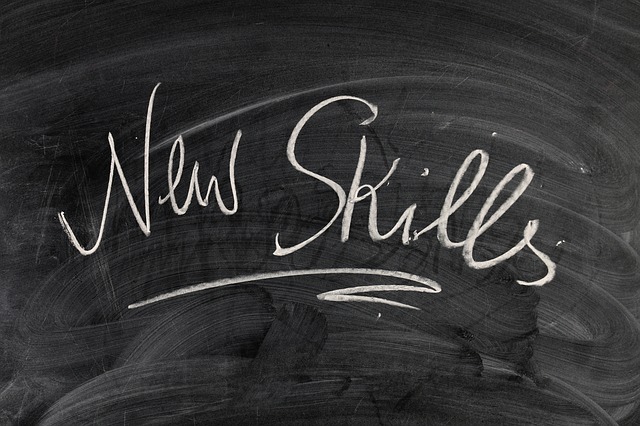What is a Growth Mindset?
“Nothing is impossible. The word itself says, I’m possible!” – Audrey Hepburn

Do you believe that you can improve your skills through dedication, hard work, and consistent effort? Do you believe that you can improve almost any skill, despite your starting point? Then you probably have what Carol Dweck would describe as a Growth Mindset. A growth mindset is different from a fixed mindset which is the belief that your abilities and skills are fixed traits, that cannot change.
When Mike Tyson said, “Talents got nothing to do with it”, he was talking about how hard work beats talent. Talent is something that you may have, but if you see your talent as something fixed, that you cant work on or improve, it will be useless against someone who deliberately practices becoming better. They will most likely, eventually become better than the person who started with more talent.
In the book Peak by the late Anders Ericsson, he talks about his research on how consistent effort can make you an expert in almost anything. Anders Ericsson was the author and psychologist, whose work Malcolm Gladwell discovered the 10,000-hour rule. Because it wasn’t fully explained in his book, Ericsson wrote his own book to explain it more fully.
Deliberate Practice
Ericsson explained what deliberate practice is. If you try to get good at anything with “deliberate practice” you can become an expert. You need to identify what you need to improve, and when you reach the point at which you can’t improve by yourself, you need a teacher or mentor who knows how to teach you how to become better. This constant process of improvement with deliberate practice is what turns people into experts. It can take significantly less than 10,000hrs or much longer, depending on how you practice.

Wolfgang Mozart
In the world of classical music, many people consider Wolfgang Amedeus Mozart, as the greatest composer ever. A musical genius from a young age, he was known to be able to identify musical notes just by hearing them. He could play chords by 3, compose music by 5, and completed his first opera but just 14 years old. Was he born with this gift? Once you study Mozart’s background, you might be inclined to believe that this is not necessarily the case.
Mozart grew up in a musical family. With composer and conductor father who had already taught Wofgangs older sister to an elite level. It’s relevant to know that his father was already an expert, who also had experience in teaching to a high level, and was now creating another musical expert. Would he have been the Mozart we know, if he had not had this background?
We’ve seen similar examples recently with Serena Williams, and Carolina Wozinaki in tennis, Lewis Hamilton in Formula One, and Michael Jackson in music. Each of them, proof that the right environment can help you to reach the elite level. They reached their pinnacle earlier than most, likely because they start much earlier that most us, as in those cases their fathers were instrumental in the development. Maybe you are thinking, *I’m too late to start trying to be great at something*. There are many examples of people who have taken up sports at a late age. In Peak, Ericsson mentions a 90 year old man who decided he wanted to get his black belt in martial arts. He made a plan and found a good teacher, and worked his way toward his goal. Do you still think you can use age as an excuse?
Maybe you think the skill you would like to learn is too complicated. Well, you may be encouraged to know, that there is little correlation between intelligence and elite performance. Yes, expertise is possible for all of us. It’s about creating the right environment to encourage growth.
So how do you develop a growth mindset?
First, you need to acknowledge that you can always improve. Fundamentally we already know this, as we have all witnessed children as they age, how they become more competent as human beings… well most of them.
All your skills and abilities can be improved if you choose to make an effort. Obviously, we don’t have time to consciously improve everything about ourselves all the time. So you will need to make a choice, of what is important to you you and would benefit your life, of you became at. Identify what skills you value and how you could benefit from being better at them. Are they skill related to your work or a hobby? How much time can you put aside?
It can be inspiring to see others who are good at what you want to be better at, so you can see what is possible. With the exception of permanent physiological or psychological differences including, for example, permanent disabilities that can affect certain skills, there are very few limitations that cannot be overcome. Of course, it will take time, so you will have to decide on your priorities, and what level you would like to get to, in what realistic time frame.
And Action!
You have made the choice. You will become better at a particular thing. Now what? You will need to take yourself seriously. What I mean by that is, making a realistic plan, and holding yourself accountable. When working with people, I have found that a mistake we often run in, is underestimating how much time and effort a project will take. I’ve made this mistake myself. It happens when we don’t ask enough questions about what it is we would like to work on.
Taking a project seriously, means understanding it as fully as possible, the journey. If you have a busy life, or time planning is something that challenges you, make a to-do list of what you need to do both related to the skill you want to improve, and other things in your life that need to be done. Arrange the things on your list in a calendar so you know when you need to do things and how long they should take. Get started as soon as you can. If you are already motivated and you have time, get started right away. The longer you put off getting started, the higher the likely hood that things will arise to stop you from making progress, and before you know it, it will become simple a dream that never came true. Dreams turn into reality with action.

In Conclusion
Growth Mindset is the belief that you can improve at almost anything. Deliberate Practice will facilitate your growth. Action starts with research and planning
Taking yourself seriously is respecting your plan and getting started
We are all capable of growth, we simply need to make the choice to do so, and actively take steps towards our growth.
So what actions will you take today?



